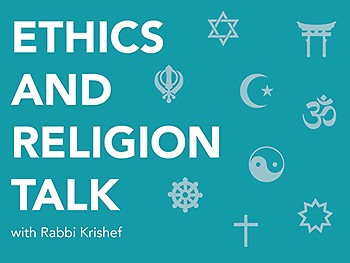A question submitted to an interfaith panel on approaches to hospice care: If we believe in heaven, why are we so afraid of dying?
The Reverend Colleen Squires, minister at All Souls Community Church of West Michigan, a Unitarian Universalist Congregation, responds:
Not all Unitarian Universalist believe in heaven. From what I have witnessed, whether a person believes in heaven or not, most folks have lots of feelings about dying. The fear or sadness around dying comes from not having lived enough, having regrets, wanting to do more in life, or wanting to see more of life, like witnessing a grandchild graduating from college or the heartache of saying good-bye to those you love. What is absent from most Unitarian Universalists belief is the fear of going to hell, that idea as a general rule is not part of our way of thinking about death.
Dr Sahibzada, the Director of Islamic Center and Imam of the Mosque of Grand Rapids, responds:
Life has a certain time limit. It is an empirical reality that there is an end to life. All must taste death. It will find us even inside of strongly built towers.
Love is the strongest factor in human nature and believers have extreme love of GOD under faith. Therefore, they must not be afraid of dying and be ready to face death anytime. Believers must be convinced that final abode is heaven.
When a believer prefers a materialistic life, then worldly life is preferable over the heavenly life in the hereafter. The fear of dying prevails due to weak aspect of belief.
The Rev. Sandra Nikkel, head pastor of Conklin Reformed Church, responds:
Everyone is afraid of the unknown but those who know God will struggle less with the fear of dying than those who do not know God. Fear has to do with punishment and those who know God also know that the punishment that we deserved, God put on Jesus, so that we could be found guiltless. Therefore, those who are in Christ Jesus can now confidently proclaim what the apostle Paul proclaimed in Philippians 1:21: ‘For to me, to live is Christ and to die is gain.’ Moreover, they can also live their lives with the same hope that Paul lived with: ‘I eagerly expect and hope that I will in no way be ashamed, but will have sufficient courage so that now as always Christ will be exalted in my body, whether by life or by death.’ (Philippians 1:20)
Fred Stella, the Pracharak (Outreach Minister) for the West Michigan Hindu Temple, responds:
The writer says ‘we,’ as if the fear of death is universal. I hold that there are those who are not afraid of transitioning. But I agree that most people do have concerns about leaving this earthly plane. And even people such as myself, who claim not to have such apprehensions, would still have their survival instincts kick in full force when faced with a situation where, say, an active shooter might be involved. There certainly is an inborn preference to expire from natural causes as opposed to violence.
Something to consider is how so many people who claim to have experienced near-death episodes seem to have no fear. Every account I’ve read or heard indicates that one who believes to have caught a glimpse of the afterlife continues on with a certain peace of mind about dying. This is because they have, as Hindu scriptures encourage, passed from belief to knowledge. Yes, there are many who discount such claims, but if the person who had such a cosmic encounter has complete conviction of its reality, then we would agree that the lack of fear they feel is honest.
Rev. Ray Lanning, a retired minister of the Reformed Presbyterian Church of North America, responds:
We fear death for two reasons. First, because God created us with a thirst for life. As ‘the wages of sin’ (Romans 6:23), death is an enemy, an invading foe who came into the world by sin. But Christ has death on His ‘enemies list’ and will destroy it when He returns at the last day. In the meantime Christ warns us not to cling to this life, and assures us of His presence and help in the hour of death: “I will never leave thee, nor forsake thee” (Hebrews 13:5).
Second, someone may be afraid of dying because he or she has no comfort for body or soul. Burdened by sin’s guilt and oppressed by sin’s power, life is an ordeal and death is the bitter end. The Christian’s only comfort in life and death is, ‘That I with body and soul, both in life and death, am not my own, but belong unto my faithful Savior Jesus Christ; who, with His precious blood, hath fully satisfied for all my sins, and delivered me from all the power of the devil’ (Heidelberg Catechism, Q. 1).
This column answers questions of Ethics and Religion by submitting them to a multi-faith panel of spiritual leaders in the Grand Rapids area. We’d love to hear about the ordinary ethical questions that come up on the course of your day as well as any questions of religion that you’ve wondered about. Tell us how you resolved an ethical dilemma and see how members of the Ethics and Religion Talk panel would have handled the same situation. Please send your questions to
[email protected].
The Rapidian, a program of the 501(c)3 nonprofit Community Media Center, relies on the community’s support to help cover the cost of training reporters and publishing content.
We need your help.
If each of our readers and content creators who values this community platform help support its creation and maintenance, The Rapidian can continue to educate and facilitate a conversation around issues for years to come.
Please support The Rapidian and make a contribution today.
